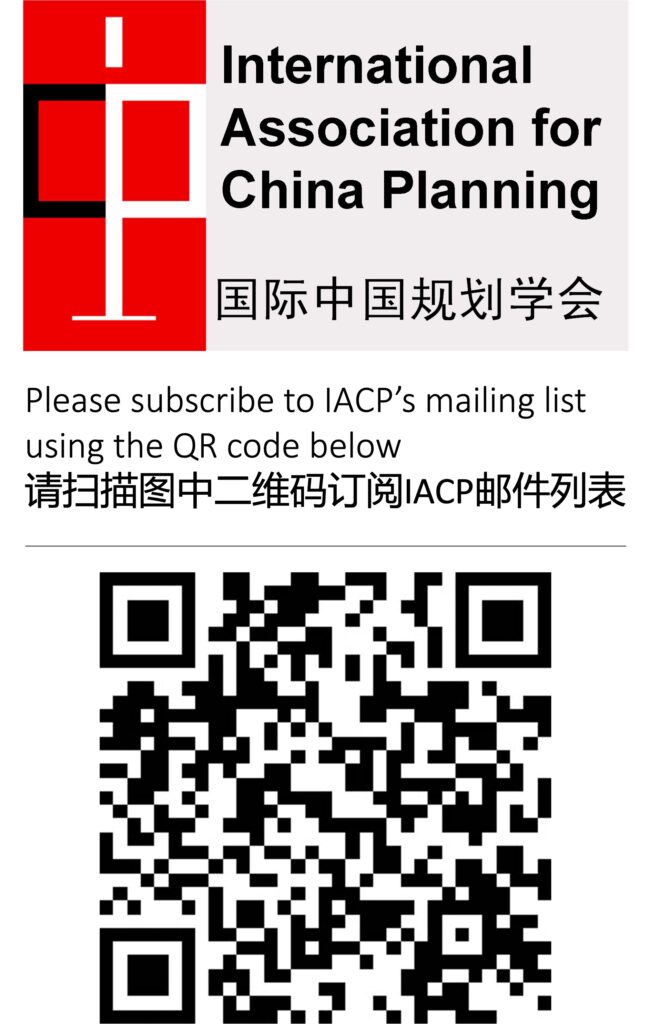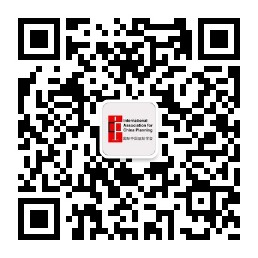19th International Association for China Planning (IACP) Conference, July 3-6, 2025, Xiamen University, Xiamen, China
Introduction
The Urban Planning AI Special Sessions, scheduled for July 5, 2025, at the 19th IACP Conference, are convened to address the critical juncture facing the urban planning profession in China, a period of pressing need for reinvention amidst evolving societal demands. The rise of artificial intelligence, a transformative technology that is reshaping every aspect of society, offers a vital opportunity to reinvigorate urban planning practice, research, and education. AI’s potential to revolutionize the profession lies in its capacity to enhance data-driven decision-making, streamline complex planning processes, and introduce innovative solutions to urban challenges. These sessions will explore how AI can transform urban planning by leveraging advanced tools such as large language models, deep reinforcement learning, and graph neural networks to redefine policy analysis, participatory planning, and infrastructure optimization. Through two morning sessions, chaired by Zhong-Ren Peng and Steven Jige Quan, leading scholars will present pioneering research on AI’s applications in urban planning. The afternoon panel, moderated by Zhong-Ren Peng, will unite academic researchers, practitioners, and AI industry leaders to discuss the vision, pathways, and implications of AI-driven transformation in urban planning education and practice. These sessions aim to spark innovative methodologies, foster interdisciplinary collaboration, and establish a forward-looking agenda for harnessing AI to redefine the urban planning profession for a dynamic and sustainable future.
- July 5, two morning sessions (8:30-12:30)
- Urban Planning AI Special Session 1
Session Chair: Zhong-Ren Peng (Professor, Department of Urban and Regional Planning, University of Florida)
Speakers:
8:40-8:55, Zhong-Ren Peng: Co-Creative Urban Planning with AI: A Theoretical CORE Framework
8:55-9:10, Anrong Dang (Professor, Department of Urban Planning, School of Architecture, Tsinghua University): The Inevitable Disruptive Impact of Artificial Intelligence on Urban Planning: Rethinking the Profession’s Foundations
9:10-9:25, Chaosu Li (Assistant Professor, Urban Governance and Design Thrust, Hong Kong University of Science and Technology (Guangzhou)): Automating Policy Extraction from Urban Plans Using Large Language Models
9:25-9:40, Yuming Lin (Assistant Professor, Department of Urban Planning, School of Architecture, Tsinghua University): Large Language Model Agents Empowered Participatory Urban Renewal
9:40-9:55, Xiaohui Yuan (Senior Expert and Director, the Innovation Research Center, Tencent Research Institute): Rethinking Urban Innovation Spaces in the AI Era: A Case Study of Tencent Headquarters Park
9:55-10:25, Q & A
- Urban Planning AI Special Session 1
10:25-10:35, coffee break
-
- Urban Planning AI Special Session 2
Session Chair: Steven Jige Quan (Associate Professor, Graduate School of Environmental Studies, Director, City Energy Lab, Seoul National University, Republic of Korea)
Speakers:
10:45-11:00, Steven Jege Quan: Enhancing Urban Microclimate Modeling Through Semi-Supervised Learning
11:00-11:15, Pengyang Wang (Assistant Professor, State Key Laboratory of Internet of Things for Smart City, Department of Computer and Information Science, University of Macau): Sewer Overflow Prevention via Multimodal Mixture of Experts Large Language Model
11:15-11:30, Zhan Zhao (Assistant Professor, Department of Urban Planning and Design, The University of Hong Kong): Large-scale electric bus network transition planning via deep reinforcement learning
11:30-11:45, Yu Han (Research Associate, Department of Land Economy, University of Cambridge): AI-Driven Analysis of Commuting Flows: Leveraging Graph Neural Networks for Urban Infrastructure Resilience
11:45-12:00, Haiyan Hao (Assistant Professor, Computational Social Science & Urban Studies, School of Humanities and Social Science, The Chinese University of Hong Kong, Shenzhen): Uncovering Compound Urban Crises with Large Language Model-Assisted Knowledge Graph Construction
12:00-12:30, Q & A
- Urban Planning AI Special Session 2
- July 5, Afternoon (13:30-15:00)
Panel Session: The Future of Urban Planning AI – Vision, Pathways, and Challenges
Moderator: Zhong-Ren Peng
Panelist: Yu Zheng (Vice President of JD.COM, Chief Data Scientist of JD Tech., Head of JD Intelligent Cities Research, Dean of Institute of Artificial Intelligence, Southwest Jiaotong University, TBD), Xiaohui Yuan, Steven Jige Quan, Anrong Dang, Wenjia Zhang (Professor, Department of Urban Planning, Tongji University), Zhan Zhao, Chaosu Li, Yuming Lin
This panel session will explore the transformative potential of artificial intelligence in shaping the future of urban planning, addressing critical challenges faced by the urban planning profession in China. Integrating AI into urban planning offers a promising pathway to enhance decision-making, optimize urban systems, and foster resilient, inclusive communities. The session will articulate a forward-looking vision for AI-driven urban planning, outline actionable pathways for its integration, and examine key opportunities and challenges, including ethical considerations, technological barriers, and cultural integration. Join leading academic researchers, practitioners, and AI companies to envision how AI can redefine urban planning for sustainable and equitable futures in China and beyond.

 Scan the QR code below to connect with IACP official WeChat account.
Scan the QR code below to connect with IACP official WeChat account.
